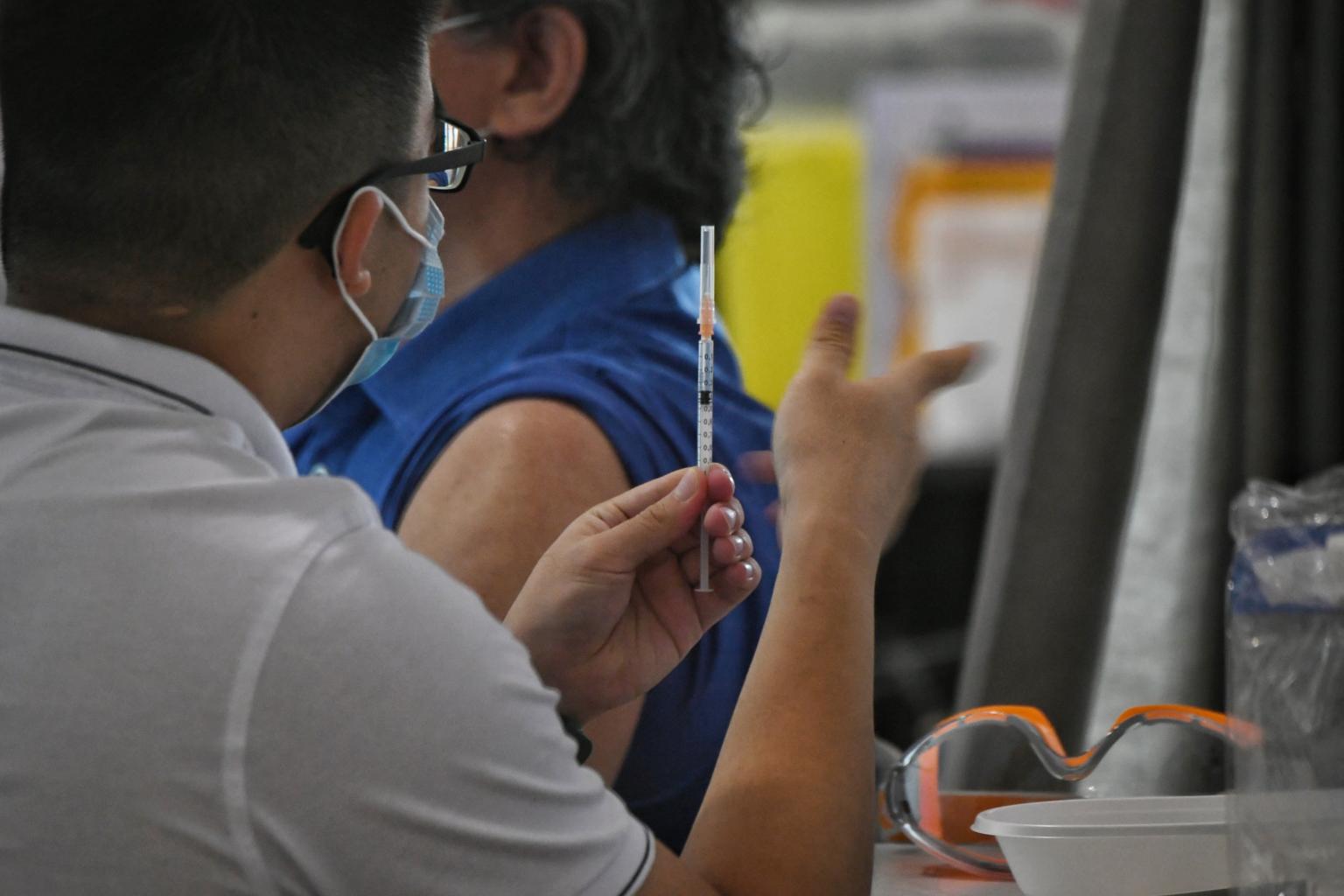Rotary Club, NUS school launch ambassador programme to tackle misinformation on vaccines
Sign up now: Get ST's newsletters delivered to your inbox

The training aims to equip participants with skills to educate their communities on the importance of getting vaccinated.
ST PHOTO: KUA CHEE SIONG
SINGAPORE - A public health ambassador programme was launched on Saturday (June 5) to train people to raise awareness on the importance of getting vaccinated against Covid-19.
The initiative by international service organisation Rotary Club of Singapore (RCS) and National University of Singapore's (NUS) Saw Swee Hock School of Public Health was launched during a public forum to address vaccine hesitancy.
Minister of State for Culture, Community and Youth and Trade and Industry Low Yen Ling, who was guest of honour at the virtual event, highlighted the importance of combating misinformation amid the roll-out of Singapore's inoculation campaign.
"Wrong and misleading information sows suspicion and confusion, and prevents people from protecting themselves and their loved ones from infection," she told the forum organised by the NUS school, with support from RCS.
"It is crucial to verify that the information received comes from trusted and legitimate sources, before sharing them," she added.
About 4.2 million doses have been administered in Singapore so far, with almost 2.4 million people having received at least one shot, she noted.
Ms Low thanked the school for organising the forum, saying that such events can help the public to be more accurately and adequately informed.
The hour-long forum was attended by more than 300 people.
NUS infectious diseases physician Hsu Li Yang gave an overview on the technologies used to develop Covid-19 vaccines, and how those approved for use in different jurisdictions have shown to be effective in preventing hospitalisations and deaths.
His colleague Hannah Clapham, an assistant professor at the NUS school, pointed out that, at the population level, greater inoculation take-up rates will reduce the chances of outbreaks of severe infection.
The two experts, as well as Associate Professor Steven Ooi, a senior consultant at the National Centre for Infectious Diseases, also fielded questions.
Responding to a query on whether there could be long-term side effects from the messenger-RNA vaccines such as the ones from Pfizer and Moderna, Prof Ooi said: "The experience of vaccinology has shown that even if there were going to be long-term side effects, these will show up very early on in a few months of the vaccine administration. We have not seen any evidence of this thus far."

Prior to the pandemic, no mRNA vaccines had been approved for use.
Prof Ooi said: "I think we are moving very cautiously as a country, (monitoring) the science that can (help) us with decision-making processes (amid) the uncertainty."
He added that for the public, there may be confusion over which source of facts can be trusted, since there is a lot of disinformation and misinformation.
Associate Professor Hsu said initiatives like the RCS ambassador programme were useful in tackling misinformation.
"For many members of the public, experts are people who are quite removed from who they are and what they do... They are better able to relate to people who are close to them and their friends," he noted.
Some 150 participants from various partner organisations of the RCS took part in the programme's first training workshop after the forum.
Conducted by the NUS public health experts, the training aims to equip them with the skills to educate their communities on the importance of getting vaccinated.
Student ambassadors plan to conduct community outreach efforts when the situation permits. Details of outreach programmes are still being finalised due to the fluidity of the Covid-19 situation in Singapore.
Singapore Management University undergraduate Nicole Ng, 21, from the Rotaract Club of Bukit Gombak, said it was important for ambassadors to understand the perspectives of those who may be more hesitant to receive the vaccine.
Her grandmother, for instance, finally got the jab after family members explained how the vaccine worked, and cited examples of family members and friends who had taken it with no or weak side effects.
Ms Ng added: "While we all may have some idea of how we should communicate, there is the chance that we may provide inaccurate information or express ourselves inadequately. As such, we are looking to the professionals from the Saw Swee Hock School of Public Health, as well as the Rotarians (Rotary Club members), to train us on our advocacy skills."


